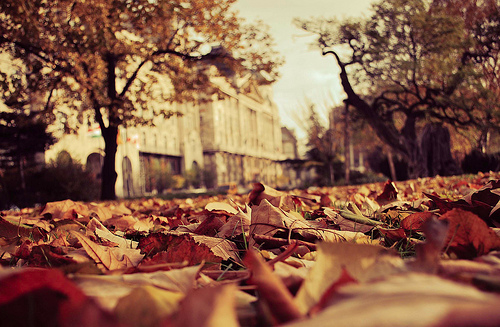In The Heat Of The Indian Summer
I increase my pace as I try to catch up with my mother wading through the crowded bazaar. It's the middle of the day and the middle of June. It's the middle of the Indian summer.
Carts laden with mangoes watermelons litchis jostle for space with impatient auto-rickshaw drivers, even more impatient pedestrians and the very patient bovine.
It's unbearably hot and typically dusty. I find myself longing for a kala khatta being sold at a stall nearby. But when I look for mom, I can only see heads matted with sweat and oil.
Finally, I catch up with mom. She is buying coconut water for the two of us. I take mine and sit in a shady spot near the stall, my tired and perspiring back against the withered bark of a peepal. All irritation and discomfort vanishes at the first sip of the water. It's slightly cold, subtly sour and absolutely refreshing. It's everything you would want on a sweltering day like this.
Upbeat, I ask my mom how long it will take to find the inconspicuous shop she is looking for.
" We are not even halfway there." She replies.
After three hours, as mum and I climb into an auto-rickshaw with our prized purchase snuggled close (it took us ages to find the shop, and the fact that we lost the way twice was in no way pleasant), the loo greets us with a backslap. It is our constant companion on the way back home, so diligent that it leaves only when we enter the house.
Loo is the great summer wind which blows in north India during the stifling summer months of May and June. It is dry, hot and intense. It is sensuous and pregnant with the fragnance of what I like to call my homeland and embraces you the moment you step out in the summer afternoon.
Once home, I am welcomed by grandma with a tall glass of cold shikanji (Indian name for lemonade) and chilled slices of melon.
I sit at peace, savouring the coldness of the offerings as the cool wet air of the desert cooler soothes my sunburnt skin. Its scent of wet khus carries a promise, a promise of approaching monsoon, the season of rain.
Carts laden with mangoes watermelons litchis jostle for space with impatient auto-rickshaw drivers, even more impatient pedestrians and the very patient bovine.
It's unbearably hot and typically dusty. I find myself longing for a kala khatta being sold at a stall nearby. But when I look for mom, I can only see heads matted with sweat and oil.
Finally, I catch up with mom. She is buying coconut water for the two of us. I take mine and sit in a shady spot near the stall, my tired and perspiring back against the withered bark of a peepal. All irritation and discomfort vanishes at the first sip of the water. It's slightly cold, subtly sour and absolutely refreshing. It's everything you would want on a sweltering day like this.
Upbeat, I ask my mom how long it will take to find the inconspicuous shop she is looking for.
" We are not even halfway there." She replies.
After three hours, as mum and I climb into an auto-rickshaw with our prized purchase snuggled close (it took us ages to find the shop, and the fact that we lost the way twice was in no way pleasant), the loo greets us with a backslap. It is our constant companion on the way back home, so diligent that it leaves only when we enter the house.
Loo is the great summer wind which blows in north India during the stifling summer months of May and June. It is dry, hot and intense. It is sensuous and pregnant with the fragnance of what I like to call my homeland and embraces you the moment you step out in the summer afternoon.
Once home, I am welcomed by grandma with a tall glass of cold shikanji (Indian name for lemonade) and chilled slices of melon.
I sit at peace, savouring the coldness of the offerings as the cool wet air of the desert cooler soothes my sunburnt skin. Its scent of wet khus carries a promise, a promise of approaching monsoon, the season of rain.
.jpg)

Comments
Post a Comment